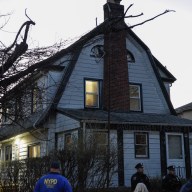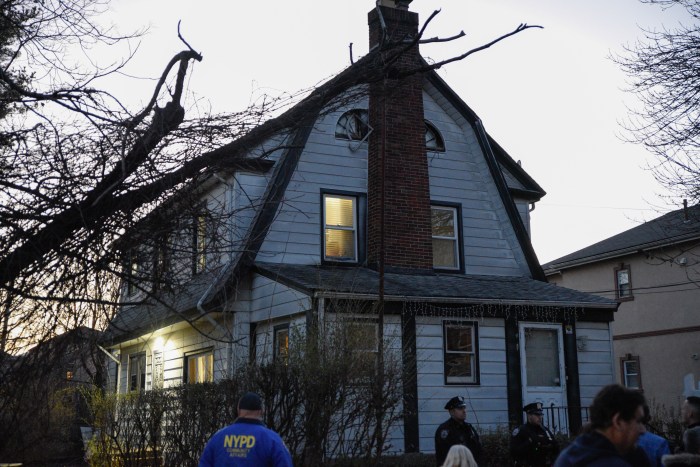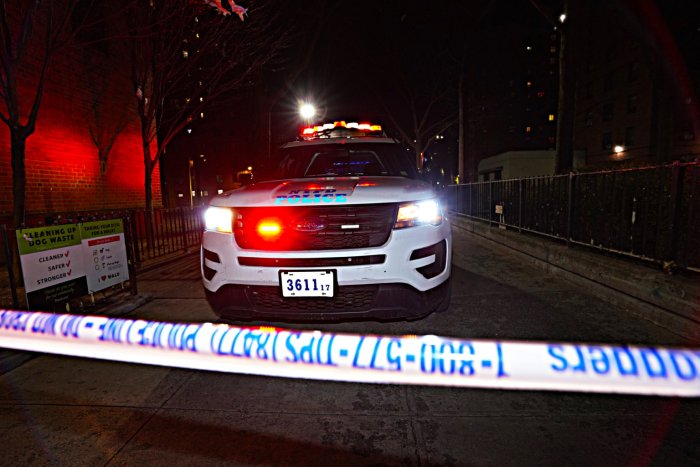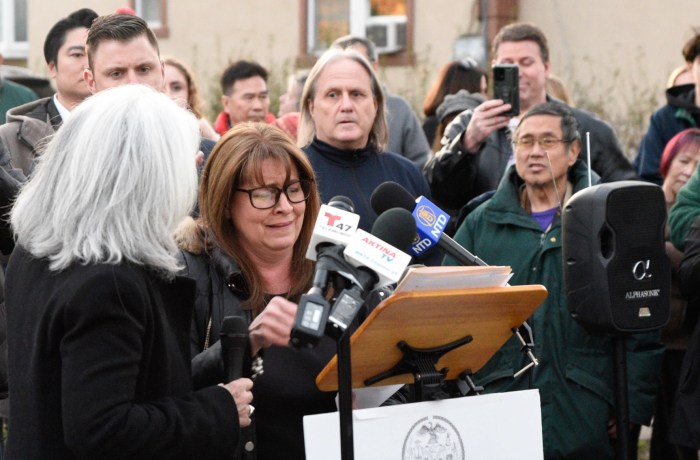Queens’ Pakistani weekly newspapers are focusing on the international events that followed the terrorist attack on Manhattan with only minimal coverage of Pakistani-American victims and survivors of the attacks.
By Betsy Scheinbart
Second in a series
Queens’ Pakistani weekly newspapers are focusing on the international events that followed the terrorist attack on Manhattan with only minimal coverage of Pakistani-American victims and survivors of the attacks.
In Pakistani papers, U.S. relations with Pakistan have outweighed coverage of the increase in bias incidents against Muslim Americans or the decrease in business for Muslim-owned stores in the borough.
Queens has at least four Pakistani weekly papers circulating in neighborhoods such as Richmond Hill, Flushing and Jamaica, which have large Pakistani communities.
Pakistan, a predominantly Muslim country, shares a border with Afghanistan, where U.S. officials believe Osama bin Laden, the suspected mastermind of the terrorist attacks in New York and Washington, has been given safe haven.
Last week Pakistani President Pervez Musharraf vowed to support the United States’ fight against terrorism, a controversial move which was met with protest from many residents of Pakistani.
The Weekly Pakistan Express, a paper published in Urdu out of Jackson Heights quoted the Senate Foreign Relations Committee Chairman Joseph Bidden of Delaware as saying “Pakistan has taken a very big risk in their decision to fully cooperate with the U.S.”
On the paper’s editorial page, the publisher contended the Pakistani president was stuck between a rock and a hard place, because if he had not cooperated with the United States, then the Americans might have attacked Pakistan.
Now that Pakistan has agreed to let U.S. military have air space rights in the country, Afghanistan may retaliate, the Express argued.
“All these matters need very deep consideration,” the editorial said. “We should not run to suicide.”
In a column, Pakistan Express writer Mujib Khan said the events of Sept. 11 were deeply rooted in the Middle East.
“The core issue is the Israeli-Arab dispute,” Khan wrote. “The U.S. is paying a lot for Israeli policy.”
In another column on the Muslim religion, Iftikhar Naseem said Islam does not permit the murder of innocent people under any circumstances.
“As Pakistani-Americans we are completely against this,” Naseem wrote about the terrorist attack. “It is so hard for our neighbors and our friends to understand our feelings, it is hard for them to understand we are also suffering and in pain.”
The Pakistan Express had one story about a Pakistani-American who escaped from his office in Tower Two after Tower One in the World Trade Center was hit by a jetliner. It did not have stories about Pakistani-Americans missing in the disaster.
The front page of Pakistan Abroad, which is printed in English and published at Hillside Avenue in Jamaica, was split between coverage of international events and New York stories. Included on the cover was an article revealing the names of several dozen Pakistanis missing on the World Trade Center attack.
Also on the cover was an article by Naseem Seemaab claiming that India has reacted negatively to Pakistan’s pledge to allow American troops but not Israeli or Indian military forces into the country.
“Reports received from Islamabad reveal that New Delhi is conspiring to bake its own bread on the flames of the charred bodies of thousands of innocent Americans who fell victim to the barbaric behavior of terrorists by labeling Pakistan as the den of the monster of terrorism,” Seemaab wrote.
The paper’s editorial page focused on the geographical and strategical predicaments of Pakistan, caught between Afghanistan in the West and India in the East, while the United States makes note of who its friends are.
“We would be the last one to cause any suffering or hardship to our Afghan neighbors but the national interest of Pakistan has to remain supreme,” the editorial read.
Then referring to the U.S. and India: “On being confronted by the sole superpower who is behaving like a wounded bear and is demanding of us in clear terms to state our position to be classified as a ‘friend or foe,’ we need to remember that the enemy on our eastern borders in aggressively luring the American to get into bed and in the process sort us out.”
Khalil Rehman, publisher of the Urdu Times and Post, which has an office in Jamaica, said the paper has concentrated on Pakistan’s response to the terrorist attack because Musharraf’s vow to support the United States will have a positive impact on the Pakistani community in Queens. The community would have been negatively affected if he had renounced the United States, Rehman said.
The newspaper’s staff is trying to get in touch with the families of the people of Pakistani origin who were victims in the World Trade Center disaster, but it is difficult to get accurate information about victims and survivors, Rehman said.
Reach reporter Betsy Scheinbart by e-mail at Timesledger@aol.com or call 229-0300 Ext. 138.

































